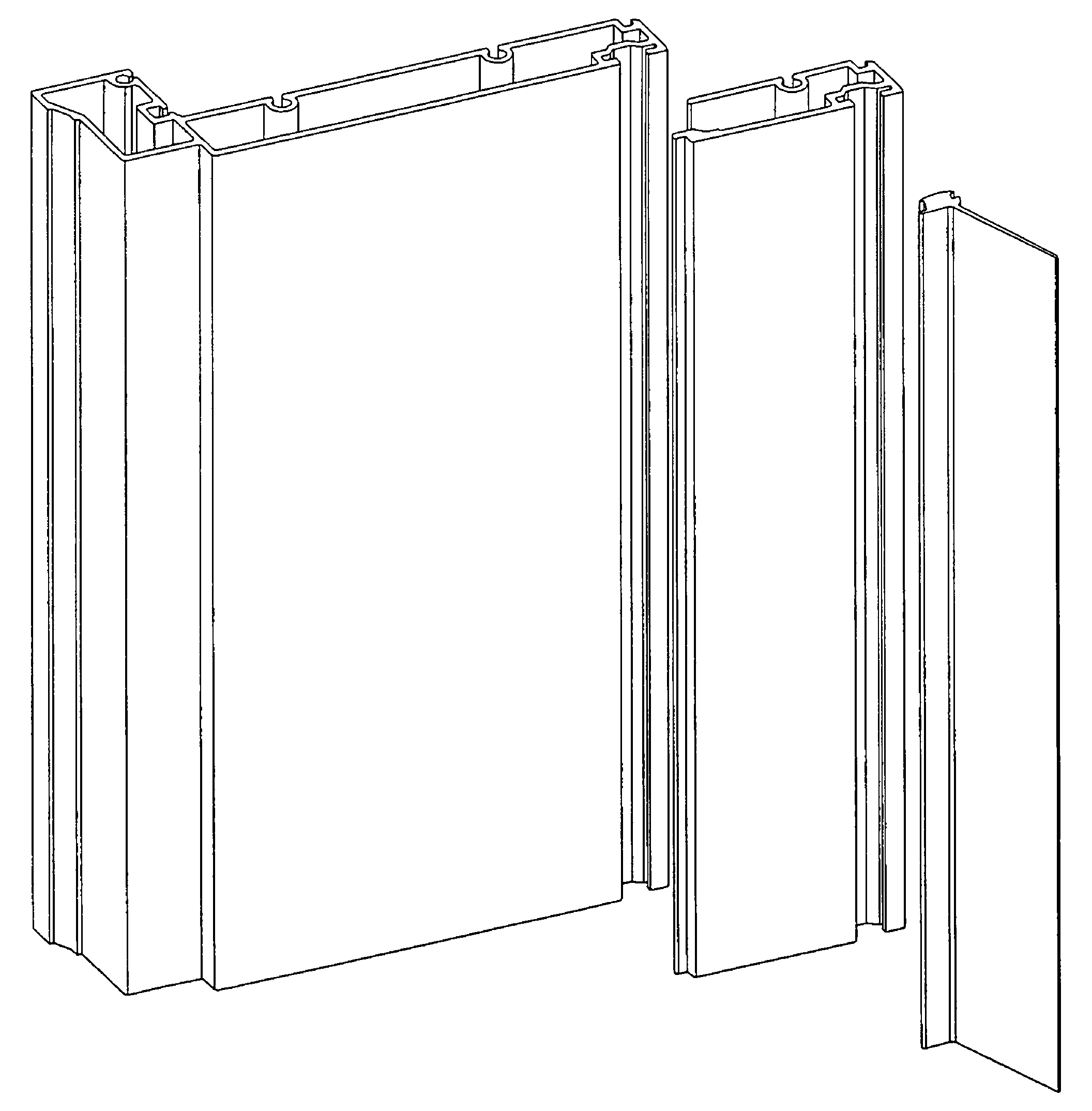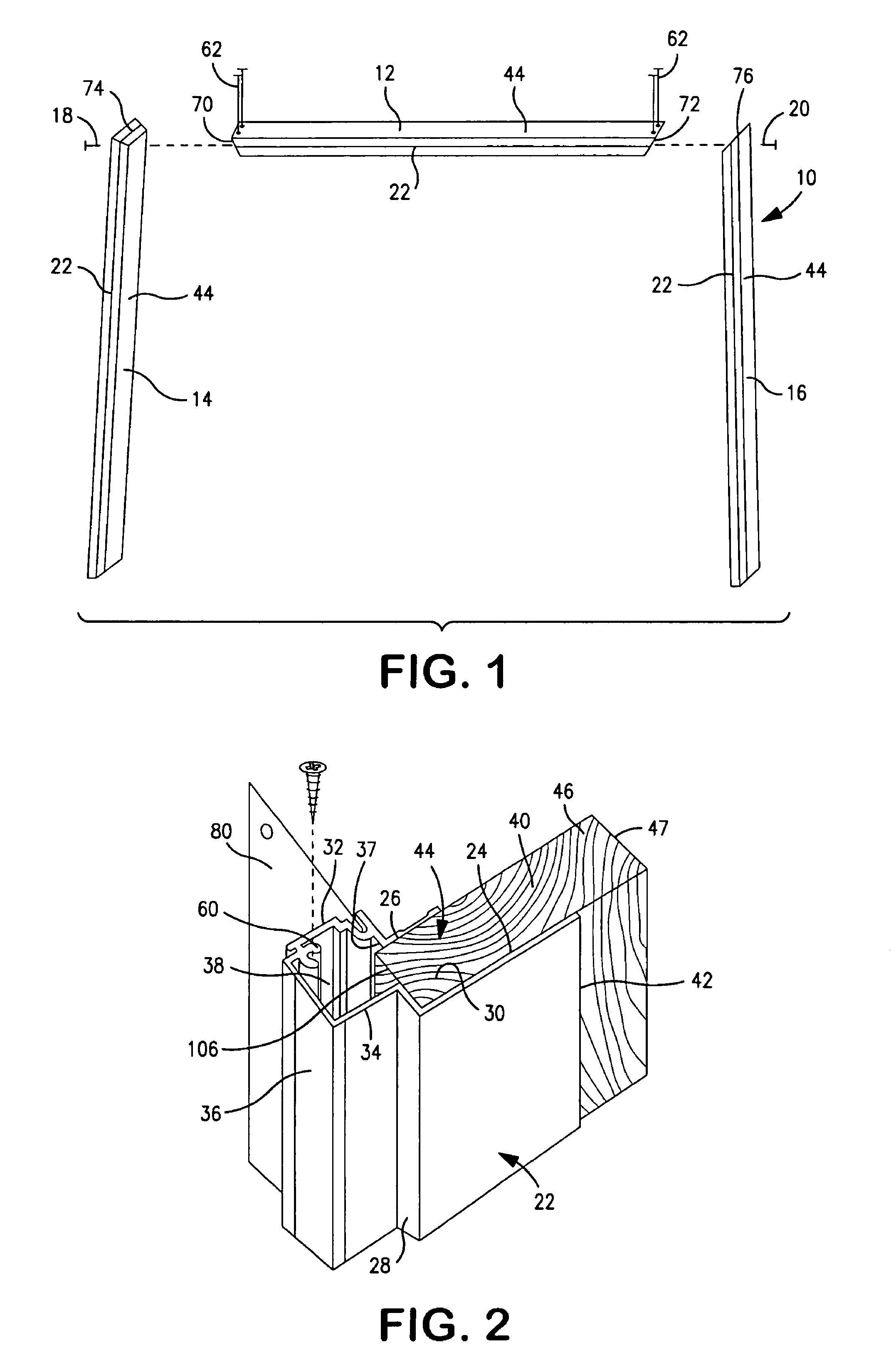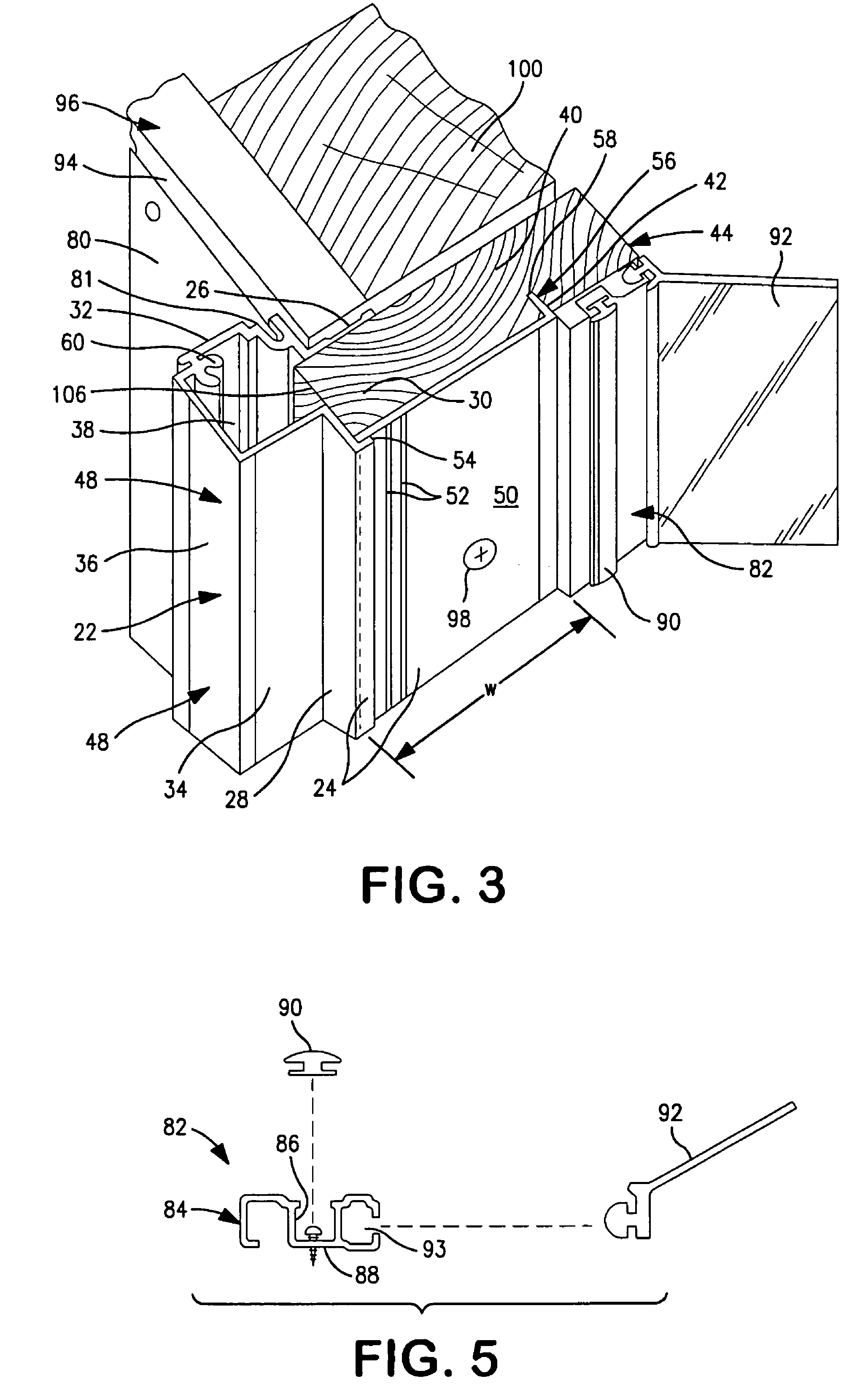Door frames and coverings
a door frame and cladding technology, applied in the field of structural framing and cladding systems, can solve the problems of reducing the service life of cladding, unable to address the issue of cladding, and unable to address the potential for rot or other wood deterioration, so as to achieve limited expansion and contraction
- Summary
- Abstract
- Description
- Claims
- Application Information
AI Technical Summary
Benefits of technology
Problems solved by technology
Method used
Image
Examples
second embodiment
[0089]In a second embodiment illustrated in FIG. 3, fiberglass pultruded structure 22 collectively comprises in combination a first outer fiberglass pultrusion 48 and a second substrate cover pultrusion 50. Substrate cover 50 includes a number of elongate outwardly-facing ridges 52, including an end ridge 54. During assembly of the respective top or side member, one or more ridges 52 can be intentionally broken away from the main body of substrate cover 50 in order to reduce the width “W” of substrate cover 50 to cooperate with the depth of the respective substrate 44. If no such reduction is needed, or after such reduction has been made, the end outwardly facing ridge 52 on the substrate cover then interfaces with a corresponding inwardly-facing ridge on outer pultrusion 48 whereby substrate cover 50 and outer pultrusion 48 are joined together and cooperate to form the two-piece fiberglass pultruded structure 22.
[0090]As with the embodiments of FIG. 2, in the embodiments of FIG. 3,...
third embodiment
[0093]pultruded fiberglass structure 22 is shown in FIG. 4. In this embodiment, pultruded fiberglass structure 22 has a frontwardly-disposed nosing defined by walls 32, 34, 36, 37, and a rearwardly-disposed jamb body defined by walls 24, 26, 28, 64. Structure 22 is fully enclosed on its front, rear, and side walls, and generally defines the entirety of the structural portion of the jamb. Namely, open edge 40 at the rear of the pultrusion has been closed off. Side wall 26 is the same length as side wall 24, though equal lengths is not a limitation. The opening between side walls 24, 26 is closed off by back wall 64. At least one support web 66 (two support webs are shown) extends across cavity 30 between side walls 24, 26 structurally reinforcing the enclosed pultruded fiberglass structure along the length of enclosed structure 22. Aligned mounting holes (not shown) are provided through side walls 24, 26 at spaced locations along the length of the jamb for mounting the jamb to frame ...
PUM
| Property | Measurement | Unit |
|---|---|---|
| thickness | aaaaa | aaaaa |
| angles | aaaaa | aaaaa |
| widths | aaaaa | aaaaa |
Abstract
Description
Claims
Application Information
 Login to View More
Login to View More - R&D
- Intellectual Property
- Life Sciences
- Materials
- Tech Scout
- Unparalleled Data Quality
- Higher Quality Content
- 60% Fewer Hallucinations
Browse by: Latest US Patents, China's latest patents, Technical Efficacy Thesaurus, Application Domain, Technology Topic, Popular Technical Reports.
© 2025 PatSnap. All rights reserved.Legal|Privacy policy|Modern Slavery Act Transparency Statement|Sitemap|About US| Contact US: help@patsnap.com



